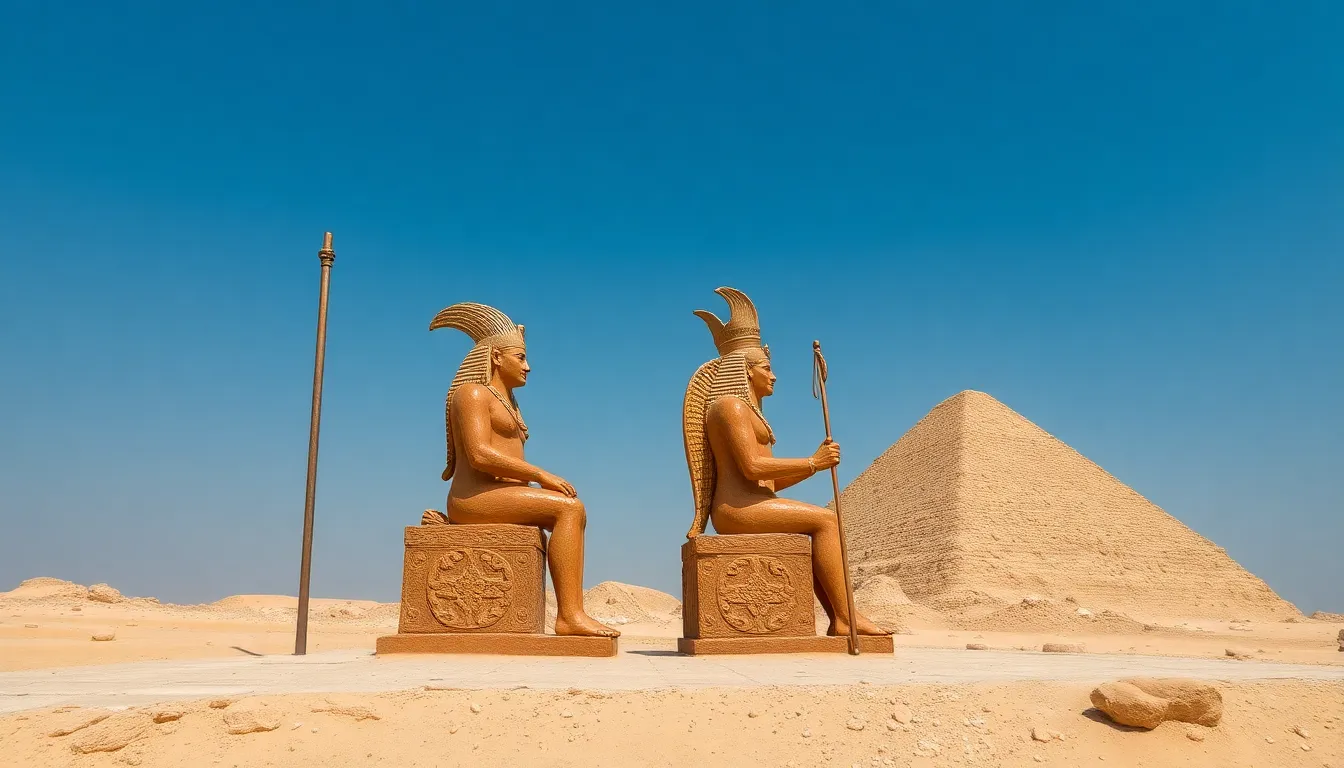The Role of the Gods in Funerary Texts
I. Introduction
Funerary texts are sacred writings associated with burial practices and the afterlife, designed to aid the deceased in their journey beyond death. These texts have been pivotal in various ancient cultures, reflecting their beliefs about life, death, and the divine. The gods played a crucial role in these texts, often seen as protectors and guides for the souls of the dead. This article explores the significance of these deities in ancient funerary practices, shedding light on their attributes and functions within these sacred writings.
II. Historical Context of Funerary Texts
The origins of funerary texts can be traced back to ancient civilizations, where the belief in an afterlife necessitated a structured approach to death and burial. Different cultures developed their own texts over time, reflecting their unique religious beliefs and practices.
- Ancient Egypt: The Egyptian Book of the Dead, a compilation of spells and prayers, is one of the most famous examples.
- Ancient Greece: Funerary inscriptions and hymns were common, often invoking gods to assist the deceased.
- Mesopotamia: Sumerian and Akkadian texts also illustrate the importance of divine assistance in the afterlife.
These texts evolved significantly throughout history, adapting to changing beliefs and practices while maintaining a focus on the divine’s role in the afterlife.
III. The Pantheon of Gods in Funerary Texts
In funerary texts, various deities are prominently featured, each with distinct roles and attributes that reflect the culture’s beliefs about the afterlife.
- Osiris: The Egyptian god of the afterlife, central to resurrection beliefs.
- Hades: The Greek god of the underworld, overseeing the realm of the dead.
- Inanna: A Mesopotamian goddess associated with death and rebirth.
These gods exhibit regional variations in representation and significance, with some cultures placing more emphasis on certain deities than others. For instance, while Osiris was essential in Egyptian texts, other cultures may have had different deities with similar roles.
IV. Functions of Gods in Funerary Beliefs
The gods in funerary texts serve several critical functions:
- Guardians of the Afterlife: Many deities are portrayed as protectors of the deceased, ensuring their safety in the afterlife.
- Guides for the Deceased: Gods often act as guides, leading souls through the challenges of the afterlife.
- Ensuring Safe Passage: Rituals and prayers invoke the gods to secure a safe journey to the afterlife, often involving trials that the deceased must face.
These functions highlight the deep-seated belief in the divine’s involvement in the transition from life to death.
V. Symbolism and Rituals Associated with the Gods
Symbolism plays a vital role in funerary art, where representations of gods are often depicted to invoke divine assistance. Common symbols include:
- Statues and images of deities, often placed in tombs.
- Hieroglyphs inscribed with prayers and spells directed to the gods.
- Offerings left at gravesites, intended to appease and invoke favor from the gods.
Rituals invoking the gods during burial practices are essential, as they are believed to ensure the deceased’s safe passage and acceptance into the afterlife. Offerings and prayers serve as a means of communication with the divine, reinforcing the bond between the living and the dead.
VI. Case Studies of Specific Funerary Texts
A. Examination of the Egyptian Book of the Dead
The Egyptian Book of the Dead, a collection of spells and texts, serves as a guide for the deceased in the afterlife. It emphasizes the importance of Osiris, who judges the souls of the dead, and the weighing of the heart ceremony, where the deceased’s heart is measured against the feather of Ma’at, symbolizing truth and justice.
B. Analysis of Greek Funerary Inscriptions and Hymns
Greek funerary inscriptions often include hymns dedicated to Hades and Persephone, imploring their mercy and favor. These texts reflect the Greeks’ beliefs about the afterlife, highlighting the importance of proper burial rites and the role of the gods in ensuring a peaceful rest.
C. Comparison of Mesopotamian Funerary Practices with a Focus on Divine Involvement
In Mesopotamian culture, funerary practices included elaborate burial rituals and offerings to gods like Inanna. Texts from this region often describe the journey of the deceased to the underworld, emphasizing the need for divine assistance to navigate this perilous path.
VII. Modern Interpretations and Relevance
Today, the understanding of ancient funerary texts continues to evolve. Scholars examine these texts not only for their historical significance but also for their insights into human beliefs about death and the divine.
- Contemporary Spirituality: Many modern spiritual practices draw upon ancient beliefs, reflecting a continued reverence for the roles these gods played in funerary traditions.
- Cultural Significance: The impact of these ancient texts can be seen in contemporary art, literature, and rituals that honor the dead.
- Academic Perspectives: Researchers explore the significance of divine roles in these texts, offering new interpretations and insights into ancient cultures.
VIII. Conclusion
In summary, the role of gods in funerary texts is a profound aspect of ancient cultures, reflecting their beliefs about death, the afterlife, and divine intervention. These deities served as guardians, guides, and protectors, ensuring the deceased’s safe passage to the afterlife. The legacy of these beliefs endures, influencing modern spiritual practices and cultural expressions. Future research directions may delve deeper into the interplay between divine influence and funerary traditions across various cultures, further enriching our understanding of this fascinating topic.




